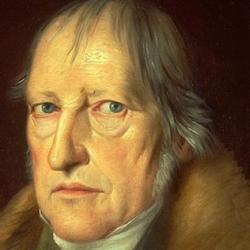In a review of Steven Pinker’s new book on Enlightenment, Peter Harrison observes that Pinker treats reason “as an unproblematic given, as if we all know what it is and are happy to sign up to Pinker’s version of it.”
It’s not so simple, and in fact Pinker’s easy use of the word runs counter to the Enlightenment itself: “Problematizing it and challenging [reason’s] authority turns out to be one of the signal achievements of the Enlightenment.”
Harrison offers several examples. There’s Bacon’s warning that “the human intellect left to its own course is not to be trusted.” And here’s Hume saying that “reason alone can never produce any action . . . Reason is, and ought only to be the slave of the passions.”
When reason comes into play in Enlightenment discussion, it’s usually “an object of critique. Establishing what it was, and its intrinsic limits, was the main game.”
For instance, “Locke insists that scientific knowledge, based on experiment, is ‘but judgment and opinion, not knowledge and certainty.’ Our knowledge of nature is necessarily limited in scope on account of ‘the weakness of our faculties in this state of mediocrity.’ Science, in short, is destined always to be a makeshift operation, falling short of truth, and providing only a measure of material amenity.”
Pinker thinks that Enlightenment reason undermined belief in God and secured a “secular foundation for morality.” Locke, though, thinks that the existence of God and of moral duty is about all that reason can give us.
Kant has similar doubts about reason: “While the Prussian philosopher certainly had little use for the traditional arguments for God’s existence – neither did the exceptionally pious Blaise Pascal, if it comes to that – this was because Kant regarded them as stretching reason beyond its proper limits. Nevertheless, practical reason requires belief in God, immortality and a post-mortem existence that offers some recompense for injustices suffered in the present world.”
In short, “contra Pinker, many Enlightenment figures were not interested in undermining traditional religious ideas – God, the immortal soul, morality, the compatibility of faith and reason – but rather in providing them with a more secure foundation.”












